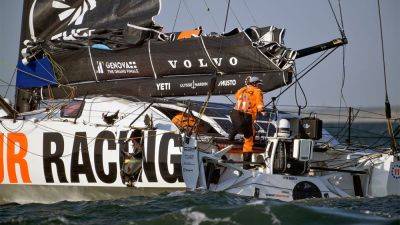'Extreme' heatwave is warming the sea waters around the UK
A sweltering marine heatwave, labelled as one of the Earth's most intense, is currently sweeping across the waters off the UK and Ireland. However, this is not your typical heatwave - the scorching temperatures are exclusive to the sea, leaving land temperatures unscathed.
The North Atlantic has been in the grips of unprecedented heat for the past three months, culminating in a blistering 23C on June 17, as reported in the New Scientist magazine. This isn't your average sunbathe and barbecue weather - experts from the US National Oceanic and Atmospheric Administration (NOAA) report that our surrounding waters are experiencing an extreme, category 4 marine heatwave.
Cathal Nolan from Ireland's Weather Channel unraveled the enigma, telling Dublin Live: "While it’s certainly been warm over land of late perhaps even more significantly the temperature of the waters around Ireland have been even hotter. NOAA has produced a graphic indicating that in some areas Sea Surface Temperatures (SST’s) are some 5 Degrees Celsius above average at present.
"We’re used to hearing about heatwaves overland, but our seas and oceans can also experience heatwaves, leading to significant impacts to sea surface temperatures, marine life, corals and secondary impacts such as fishing, real feel conditions for swimmers and of course, our weather."
Nolan then delved deeper into the factors contributing to this aquatic heatwave. "For Ireland, the prolonged spell of warm, sunny weather we’ve experienced has certainly elevated our SST’s, with values now on par with what we would typically expect in August or September when they’re at their highest.
"Weak Trade Winds from Africa, meaning less Saharan sand in our atmosphere and thus more direct sunlight,






